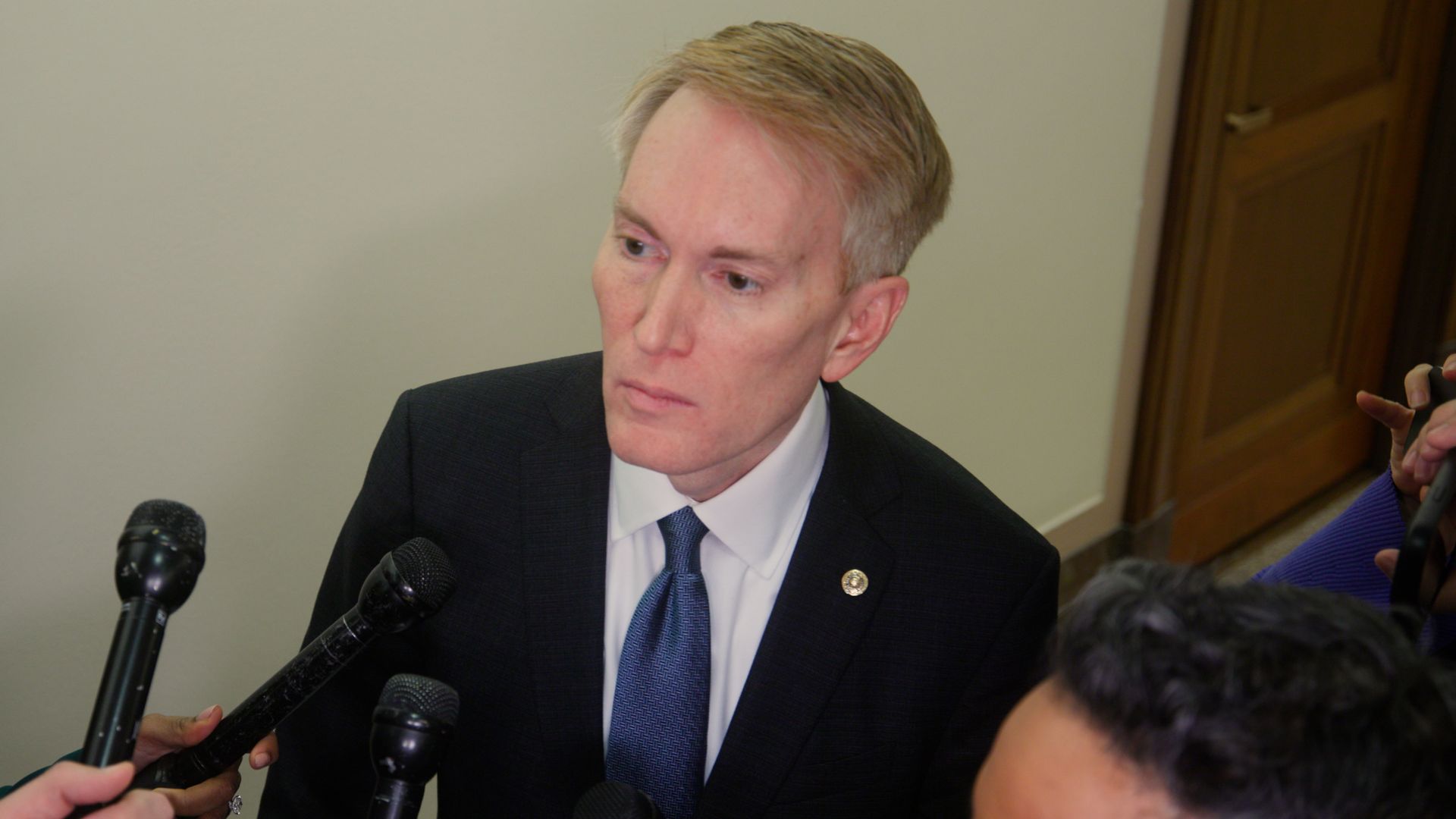
[RAY BOGAN]
The text of the bill to provide foreign aid to Ukraine, Israel and Taiwan and increase US border security could be released at any moment.
It can’t come fast enough for lawmakers, between Donald Trump’s opposition and what negotiators call rumors, what once looked like a promising bipartisan victory now may not even get approved in one piece, if at all.
Sen. James Lankford, R-OK: “And so everyone’s going off of internet rumors. And there’s lots of things that are out there. They’re just patently false.”
[RAY BOGAN]
Lankford says the single biggest piece of misinformation is that the bill would allow 5,000 people a day to enter the US at which point the border would be shut down. Lankford says he would never agree to that.
Sen. James Lankford R-OK: “It’s not 5000 in. It’s everyone who doesn’t qualify out.”
[RAY BOGAN]
Here’s what Lankford says is really in the bill:
- Enhanced asylum screenings
- Increased migrant detention capacity
- Increased deportation flights
- An end to catch and release
- And a daily cap on immigration to prevent the Border Patrol from becoming overwhelmed
Sen. James Lankford R-OK: “When we get overrun, it stops all traffic and pushes it back to Mexico and says we’re not releasing you into the country, we’re turning you around, until we can actually process people. That is being completely mischaracterized.”
[RAY BOGAN]
Although Republican support in the Senate has diminished, unanimity or near unanimity from Democrats along with about 25 Republican votes is still enough to get it approved.
Sen. Tim Kaine, D-VA: “I think it’s going to be approved on the Senate side. I think the house it’s a little more of a question mark.”
[RAY BOGAN]
House Speaker Mike Johnson says based on what he’s heard so far, it’s a non-starter in the House.
Speaker Mike Johnson, R-LA: “I hope some of this is not true. But from what we’ve seen clearly, what’s been suggested is in this bill is not enough to secure the border.”
[RAY BOGAN]
There are two issues here, both get worse with time. 1) Lawmakers lose the political will to get it done in a presidential election year and 2) the need to send more help to Ukraine, Israel and Taiwan increases, which may require lawmakers to act on that separately.
Sen. Markwayne Mullin, R-OK: “The more you change the bill, the more partisan it becomes. And at some point, instead of being bipartisan, it becomes partisan. And at some point, we have to make the decision to how much more can we give before we walk away? And I think we’re there.”











